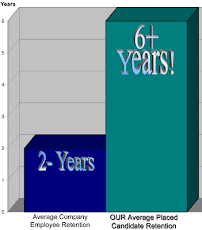Friday
Surviving a Layoff in a Down Economy
"It's easy to view a layoff as an end-of-the-world situation, especially when the economy is bad. But a negative attitude will only hurt your chances of finding a new job. To help you mentally and emotionally, a career coach offers his seven tips for surviving a layoff and finding a new job.
It's easy to view a layoff as an end-of-the-world situation. Few experiences are scarier than losing your job and the financial security it brings.
The fear and desperation that grip you after you've been laid off are destructive emotions. They distract you from doing the work you need to do to find a new job. That's why you can't let those emotions consume you, says Dr. Richard Bayer, a former professor of economics and ethics who currently serves as COO of The Five O'Clock Club, a career coaching and outplacement network.
"Resist the urge to think of unemployment as the end of the world, no matter how upsetting it may be," he says. "Think of it instead as an opportunity to improve yourself and to make a fresh start. Maybe you're going to find out that what you enjoy doing and do well is different from what you were doing. You can end up better off than you were before."
The key, says Bayer, is maintaining a positive attitude because potential employers can detect a candidate's desperation as easily as a shark can smell blood, and they don't like it. To keep a stiff upper lip, Bayer offers the following seven tips for thriving after a layoff, even in a bad economy.
1. Negotiate for the best possible severance package
Don't think that you have to accept whatever severance package your manager or HR puts in front of you as is, says Bayer. Your severance package is negotiable, he says, so don't feel pressured to immediately sign on the dotted line. Take the time to read the severance package, even if it's 20 pages long.
If your employer gives you a hard time, Bayer says to hold your ground and tell the manager that it's not reasonable for the employer to ask you to sign something without first reading it.
"Sometimes employers will say, 'If you sign this right now, you'll get your best deal. If you don't sign it, you'll get a worse deal'," says Bayer. "I wouldn't buy into that. Tell them you have to sleep on it. There's nothing that should surprise them about you wanting to sleep on it."
To help you prepare for severance negotiations, Bayer recommends consulting your HR manual for information about what kind of severance package you should expect from your employer. That way, you can plan ahead of time what other elements of a severance package (e.g., career counseling, health insurance) you might need.
If you require more information than what's included in the HR manual, Bayer suggests politely asking other employees who've been let go what they received for severance.
When it comes to actual negotiations, Bayer advises negotiating one perk at a time, whether it be the money, healthcare or career coaching, rather than going after the whole package. "You always get more if you look at one thing at a time," he says. "Your mantra should be, 'I just want to be treated fairly.' "
Finally, Bayer recommends conducting negotiations on your own, without a lawyer, not just because of the expense. "Once you get lawyers involved, it's lawyers talking to lawyers. You lose a certain amount of control," he says. "Try to work it out with the firm in a congenial way."
2. Don't second-guess yourself
After you've been laid off, you feel vulnerable. When you feel vulnerable, it's easy to second-guess yourself and to sink into depression. What's difficult is resisting those negative thoughts. But for your own well-being and the success of your job search, you have to, says Bayer.
Instead of dwelling on all the reasons why your employer might have selected you for a pink slip, Bayer says to remember that the fundamental reason you lost your job was because your employer was having trouble competing during this economic downturn, not because you're a bad worker. Bayer says to keep in mind that lots of other talented, hard-working professionals are getting laid off and that you can still be a valuable employee at another company.
"There are still plenty of companies that are in desperate need of quality employees," he says. "There is something else out there for you, and chances are, it's a great opportunity that will improve your future."
3. Examine your finances
Take a close look at your expenses and your savings to determine how much money you'll need to cover your expenses during the time you're unemployed, says Bayer. He recommends planning for an extended period of time-e.g., more than three months.
Knowing how much money you have on hand could put some of your anxiety about having lost your job to rest. If instead the exercise of managing your money sends your blood pressure through the roof, you've got new motivation to find a new job.
4. Make job-hunting your new job
Another way to prevent getting depressed about your circumstances is to stay active, says Bayer. That's why it's so important to devote the time you previously spent at your old job to looking for a new job.
"Your new job is 40 hours a week looking for employment," says Bayer. "Keep busy at it and don't let yourself get down. Try to keep a routine."
By working toward getting a new job, you bring structure and discipline to your life and you'll feel better about yourself because you're taking control of your situation.
"If you do this, you'll find that you have less time to lament your recent layoff and less time to sink into the negative thought patterns that are associated with it," he says.
5. Expand your search
Bayer recommends making a long list of industries and organizations in those industries where you could put your skills and experience to use. "Don't worry too much about who might be hiring," he says. "Just develop a long list even containing companies you don't want to work for."
The reason to include less desirable companies in your search is to put yourself in a stronger negotiating position in the event one of those firms suddenly wants you.
6. Approach online applications with caution
Though the Web is an invaluable resource for researching companies, it's not the best medium for submitting job applications and résumés, says Bayer. "If you can do it, about a million other people can do it, too," he says. "I've talked to companies who get hundreds, even thousands, of résumés for one posting. That is not the way to get a job."
Instead, he recommends using your network to make contact with hiring managers inside the companies where you're interested in working.
Instead of spending a day at search firms, attend a conference or networking event, says Bayer, where you have the opportunity to make personal connections.
7. Stop reading about the economy
Bayer cautions job seekers against paying too much attention to news about the economy because the news is so bad. "It makes people discouraged when they need to stay optimistic," he says. "Discouragement is the biggest obstacle to finding a new job."
What's more, prospective employers can sense discouragement and negativity in candidates, he says, and it turns them off.
"If they sense that you're negative or in a panic, they're much less likely to think that you're a good candidate," says Bayer. "They want someone who's resilient. They don't want an employee who's discouraged and negative and who will hurt morale." - Meridith Levinson
It's easy to view a layoff as an end-of-the-world situation. Few experiences are scarier than losing your job and the financial security it brings.
The fear and desperation that grip you after you've been laid off are destructive emotions. They distract you from doing the work you need to do to find a new job. That's why you can't let those emotions consume you, says Dr. Richard Bayer, a former professor of economics and ethics who currently serves as COO of The Five O'Clock Club, a career coaching and outplacement network.
"Resist the urge to think of unemployment as the end of the world, no matter how upsetting it may be," he says. "Think of it instead as an opportunity to improve yourself and to make a fresh start. Maybe you're going to find out that what you enjoy doing and do well is different from what you were doing. You can end up better off than you were before."
The key, says Bayer, is maintaining a positive attitude because potential employers can detect a candidate's desperation as easily as a shark can smell blood, and they don't like it. To keep a stiff upper lip, Bayer offers the following seven tips for thriving after a layoff, even in a bad economy.
1. Negotiate for the best possible severance package
Don't think that you have to accept whatever severance package your manager or HR puts in front of you as is, says Bayer. Your severance package is negotiable, he says, so don't feel pressured to immediately sign on the dotted line. Take the time to read the severance package, even if it's 20 pages long.
If your employer gives you a hard time, Bayer says to hold your ground and tell the manager that it's not reasonable for the employer to ask you to sign something without first reading it.
"Sometimes employers will say, 'If you sign this right now, you'll get your best deal. If you don't sign it, you'll get a worse deal'," says Bayer. "I wouldn't buy into that. Tell them you have to sleep on it. There's nothing that should surprise them about you wanting to sleep on it."
To help you prepare for severance negotiations, Bayer recommends consulting your HR manual for information about what kind of severance package you should expect from your employer. That way, you can plan ahead of time what other elements of a severance package (e.g., career counseling, health insurance) you might need.
If you require more information than what's included in the HR manual, Bayer suggests politely asking other employees who've been let go what they received for severance.
When it comes to actual negotiations, Bayer advises negotiating one perk at a time, whether it be the money, healthcare or career coaching, rather than going after the whole package. "You always get more if you look at one thing at a time," he says. "Your mantra should be, 'I just want to be treated fairly.' "
Finally, Bayer recommends conducting negotiations on your own, without a lawyer, not just because of the expense. "Once you get lawyers involved, it's lawyers talking to lawyers. You lose a certain amount of control," he says. "Try to work it out with the firm in a congenial way."
2. Don't second-guess yourself
After you've been laid off, you feel vulnerable. When you feel vulnerable, it's easy to second-guess yourself and to sink into depression. What's difficult is resisting those negative thoughts. But for your own well-being and the success of your job search, you have to, says Bayer.
Instead of dwelling on all the reasons why your employer might have selected you for a pink slip, Bayer says to remember that the fundamental reason you lost your job was because your employer was having trouble competing during this economic downturn, not because you're a bad worker. Bayer says to keep in mind that lots of other talented, hard-working professionals are getting laid off and that you can still be a valuable employee at another company.
"There are still plenty of companies that are in desperate need of quality employees," he says. "There is something else out there for you, and chances are, it's a great opportunity that will improve your future."
3. Examine your finances
Take a close look at your expenses and your savings to determine how much money you'll need to cover your expenses during the time you're unemployed, says Bayer. He recommends planning for an extended period of time-e.g., more than three months.
Knowing how much money you have on hand could put some of your anxiety about having lost your job to rest. If instead the exercise of managing your money sends your blood pressure through the roof, you've got new motivation to find a new job.
4. Make job-hunting your new job
Another way to prevent getting depressed about your circumstances is to stay active, says Bayer. That's why it's so important to devote the time you previously spent at your old job to looking for a new job.
"Your new job is 40 hours a week looking for employment," says Bayer. "Keep busy at it and don't let yourself get down. Try to keep a routine."
By working toward getting a new job, you bring structure and discipline to your life and you'll feel better about yourself because you're taking control of your situation.
"If you do this, you'll find that you have less time to lament your recent layoff and less time to sink into the negative thought patterns that are associated with it," he says.
5. Expand your search
Bayer recommends making a long list of industries and organizations in those industries where you could put your skills and experience to use. "Don't worry too much about who might be hiring," he says. "Just develop a long list even containing companies you don't want to work for."
The reason to include less desirable companies in your search is to put yourself in a stronger negotiating position in the event one of those firms suddenly wants you.
6. Approach online applications with caution
Though the Web is an invaluable resource for researching companies, it's not the best medium for submitting job applications and résumés, says Bayer. "If you can do it, about a million other people can do it, too," he says. "I've talked to companies who get hundreds, even thousands, of résumés for one posting. That is not the way to get a job."
Instead, he recommends using your network to make contact with hiring managers inside the companies where you're interested in working.
Instead of spending a day at search firms, attend a conference or networking event, says Bayer, where you have the opportunity to make personal connections.
7. Stop reading about the economy
Bayer cautions job seekers against paying too much attention to news about the economy because the news is so bad. "It makes people discouraged when they need to stay optimistic," he says. "Discouragement is the biggest obstacle to finding a new job."
What's more, prospective employers can sense discouragement and negativity in candidates, he says, and it turns them off.
"If they sense that you're negative or in a panic, they're much less likely to think that you're a good candidate," says Bayer. "They want someone who's resilient. They don't want an employee who's discouraged and negative and who will hurt morale." - Meridith Levinson
Subscribe to:
Post Comments (Atom)














1 comment:
Take time to get in touch with your own data with Desktop Search. Random display of video and pictures along with your favorite songs will make the learning fun. If you have great control of your data, textual and otherwise look out. Data security be dambed. Data access is far more important. SpectateSwamp
Post a Comment